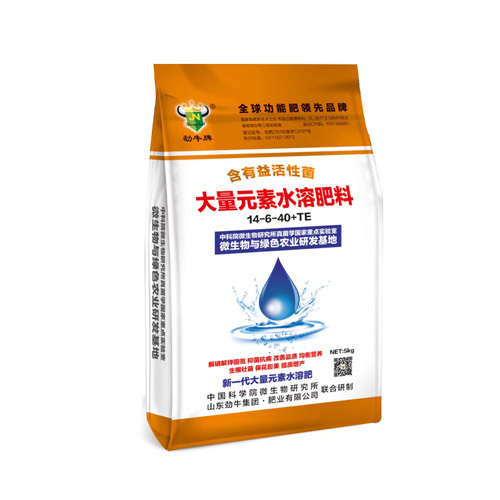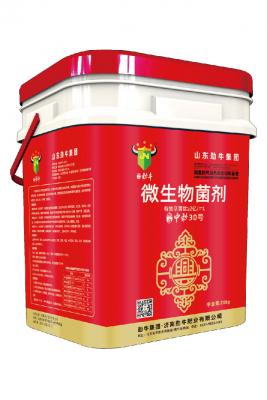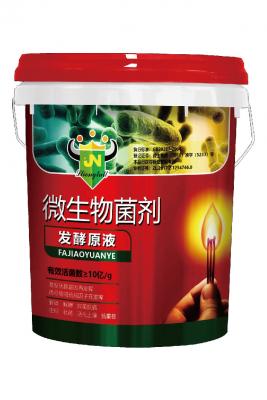Do you know what microbial fertilizer is?
Microbial fertilizers are developed based on the principles of soil microecology, phytonutism and the basic concepts of modern organic agriculture. Microbial fertilizer is a new type of fertilizer biological product, is a fertilizer in agricultural production (also known as the third generation of fertilizer), which uses the life activity of microbial activity (reproducible) to cause crops to obtain the required nutrients (fertilizer).

Microbial fertilizer contains more than ten kinds of highly active beneficial microbial bacteria, suitable for the use of various crops, can activate nutrients, improve nutrient utilization, has a wide range of universality, breaking the inherent weaknesses of ordinary biological fertilizers, limitations and special fertilizers, is incomparable to other biological fertilizers. It can be applied to various types of soil. In general, all land where plants grow can be applied with microbial fertilizers to improve the soil, reduce the use of chemical fertilizers, and promote crop growth. It helps the soil return to its natural state, balancing the pH of the soil until the crop needs it. These are all designed to help improve soil fertility and help eliminate pollution from soil, water and air.
The role of microbial fertilizers:
Improve the utilization rate of chemical fertilizers
As we all know, with the widespread use of chemical fertilizers, their utilization rates are declining. This shows that it is limited to increase crop yields only through the heavy application of chemical fertilizers, not to mention a series of problems such as environmental pollution. Therefore, scientists from all over the world have been working hard to improve the utilization rate of chemical fertilizers, achieve balanced fertilization, rational fertilization, and overcome the drawbacks of chemical fertilizers. Microbial fertilizers play a unique role in solving this problem. Therefore, according to the types of crops and soil conditions in China, the application of microbial fertilizers and fertilizers can not only ensure the increase in yield, but also reduce the use of chemical fertilizers, reduce costs, improve soil quality and crop quality, and reduce pollution.
Plays a role in green food production
With the continuous improvement of people's living standards, especially people's requirements for improving the quality of life, domestic and foreign countries are actively developing green agriculture (ecological organic agriculture) to produce safe and pollution-free green food. In the production of green food, there is no need or as little (or limited) of fertilizers, chemical pesticides and other chemicals as possible. It requires that chemical fertilizers need to first protect and promote the growth and quality of the application object; second, do not produce and accumulate harmful substances; third, there is no adverse impact on the ecological environment. Microbial fertilizers basically conform to the above three principles. In recent years, China has manufactured a variety of microbial fertilizers with special functions, which can not only alleviate or reduce the pollution of agricultural products, but also improve the quality of agricultural products.
The role of microbial fertilizers in environmental protection
It is a cost-effective way to make microbial fertilizers by using specific functions of microorganisms to decompose and ferment municipal solid waste and agricultural and livestock waste. At present, there are two main application methods. The first is to directly process a large amount of municipal solid waste into microbial organic compound fertilizer for treatment as raw materials; the second is to produce special microbial fertilizer (fungal agent) in the composting plant (field), and then stack various agricultural and animal husbandry materials to accelerate the fermentation process, shorten the composting cycle, and improve the quality and maturity of composting. In addition, microbial fertilizers are used as soil purifiers.
Soil effect improvement
Combined with plant mucus, mineral embryos and organic colloids, it can improve the soil aggregate structure, enhance soil physical properties, reduce soil particle loss, under certain conditions, can also participate in humus formation, and beneficial microorganisms in microbial fertilizers can produce sugar, accounting for 0.1% of soil organic matter. Therefore, the application of microbial fertilizer can improve the physical properties of the soil and is conducive to improving soil fertility.



